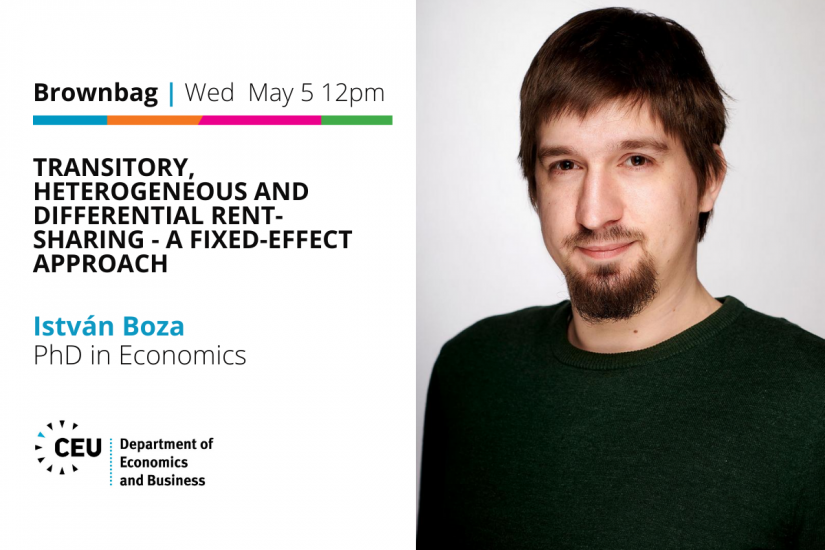
Abstract:
The paper provides rent-sharing elasticity estimates from Hungarian administrative linked employer employee panel data. By combining recent advances in the rent-sharing literature and the use of alternative specifications of the AKM model, we propose a measure which relies on within firm identification of wage effects on transitory productivity changes, while also controlling for the heterogeneity in the firm's workforce composition. The estimated elasticites from OLS regressions range between 0.05-0.16 across the established specifications. Estimates relying on internal instruments, as past productivity or sales measures, range between 0.12-0.18.
A second set of results focuses on heterogeneity of firms with respect to their rent-sharing behaviour, comparing firms based on their ownership, industry and size. Preliminary results suggests that the ordering based on cross-sectional elasticity estimates can reverse in within-firm design. For instance, while the wage-productivity relation in cross-section is weakest in agriculture, firms of this sector show the strongest reaction to temporal fluctuations of productivity.
Finally, we test whether firms tend to share their rents differently with different sub-groups of their workers. Such phenomena can be a prominent source of within-firm wage differences. Even after accounting for the possible non-random sorting of workers into firms with different levels of rent-sharing, we find significantly higher rent-sharing elasticities for males and workers of higher education, in better occupations, and with more experience in the given firm. The gender differences are further investigated across occupation levels, different firm types, and with the transitory specifications of the first section.